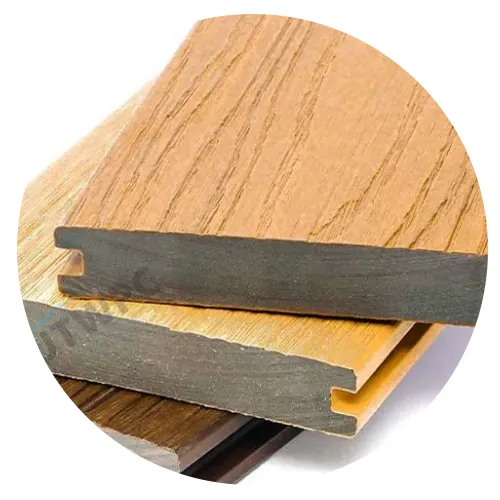Choosing between hollow and solid composite decking is a significant decision for homeowners looking to enhance their outdoor living spaces. Composite decks have become increasingly popular for their durability, low maintenance, and aesthetic appeal. As a leading manufacturer and supplier, OUTWPC offers both solid and hollow composite decking options, each with its unique advantages tailored to various needs and preferences. Let’s delve into the characteristics, applications, and benefits of hollow vs. solid composite decking to help you make an informed decision.

Understanding Composite Decking
Composite decking, or WPC decking, combines wood fibers, plastic, and bonding agents to create a robust, long-lasting material. OUTWPC’s composite decking is backed by a 15-year warranty, promising longevity with minimal maintenance. Available in both solid and hollow constructions, it’s essential to understand the differences to choose the best option for your project.



Hollow vs. Solid WPC Decking: A Comparative Breakdown
Price
- Hollow Decking: Generally more cost-effective than solid decking, with square hole decking being the most affordable and popular option.
- Solid Decking: Priced higher due to its increased material density and strength.
Weight-Carry Ability
- Solid Decking: Boasts a higher load-bearing capacity, suitable for heavy applications like hot tubs.
- Hollow Decking: Offers a relatively lower load capacity, making it less ideal for placing heavy items.
Sound Absorption
- Solid Decking: Provides excellent soundproofing qualities, absorbing sound effectively.
Natural Effect
- Solid Decking: Mimics the look and feel of natural timber more closely than hollow decking.
Structural Stability
- Hollow Decking: Circle hollow composite decking offers a solid structure with balanced weight distribution.
Deck Weight
- Hollow Decking: Uses less material, making it lighter and easier to handle and install by one person.
- Solid Decking: Heavier, requiring more manpower for installation.
Installation
- Hollow Decking: Easier to install, especially for single-person projects.
- Solid Decking: May require more effort or additional hands due to its weight.
Temperature Fluctuations Effect
Both types of decking experience minimal expansion and contraction with temperature and moisture changes. However, hollow decking, with more space for expansion, is slightly less affected by external environmental factors, reducing the risk of warping.
Applicability
- Solid Decking: Ideal for residential decking projects, offering a robust and natural look.
- Hollow Decking: Suitable for both residential and commercial projects, especially in high-traffic areas like outdoor bars.
Making the Right Choice
Whether hollow or solid composite decking is better for you depends on various factors, including budget, project location, and specific application needs. OUTWPC ensures quality products regardless of your choice, guaranteeing decades of enjoyment with proper installation and maintenance. Consider your requirements carefully to select the best decking option for your outdoor space, creating a beautiful, functional area for leisure and entertainment.
